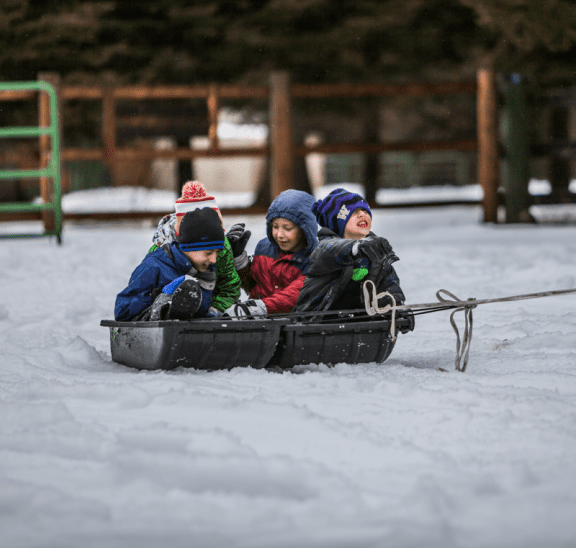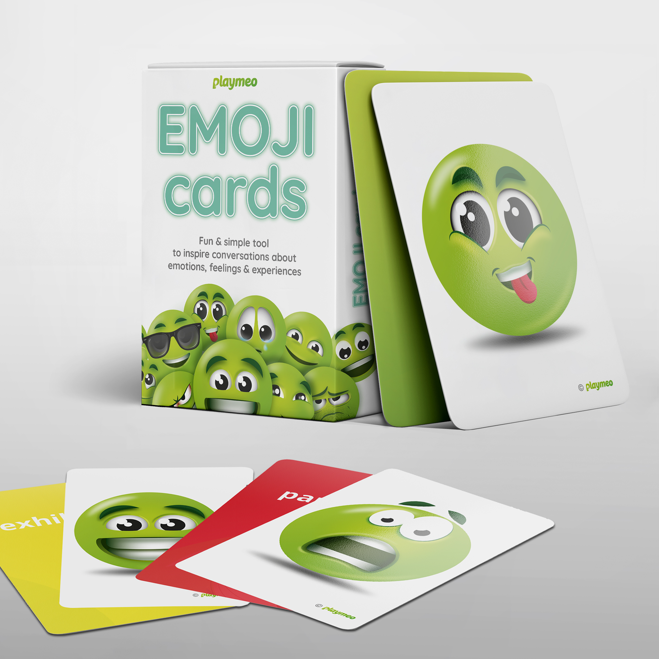20+ Fun & Engaging Ways to Form Random Pairs
So you’ve asked your group to pick a partner so that you can form smaller teams and… they immediately make a beeline to their best…

When does play cross a threshold and become too risky?
Do you encounter this question in your programs?
Should young people be exposed to it? Is it beneficial?
Richard Williams, Managing Director of Risky Kids and this week’s guest contributor, explores the concept of risky play.
You’re out and about with your kid or someone else’s kids who you’re looking after and you look away for just a few seconds when you hear “Hey! Watch this!” They’ve scampered up on top of something and they are definitely about to jump off it. Questions start racing through your head; how did they even get up there? Are they going to try and flip? Have they even jumped off anything that high? How did they get up there so fast? Finally, of course, we arrive at; What am I supposed to do and WHY are they doing it? Welcome to Risky Play, something which is universally pursued by kids, and universally the cause of many a panic attack in adults.
The Risky Kids program explores both those questions and takes the concepts behind it much, much further. We harness this natural process to turn kids into little risk assessment machines. On the surface, it might sound boring, but when you begin to put it into perspective, we assess risks every day, from how we eat, to when we go to sleep and how we interact with the people around us.
The decision to apply for a new job, or what subjects to study, or avoid discomfort in a personal relationship, are all rooted in our ability to process risk with clarity. So it’s essential that we start preparing kids for it early. So it’s good to know that all signs point to Risky Play being unavoidable!
Risky Play is hard-wired into kids for a variety of interesting and exciting reasons. The more we learn about it the more we see how far-reaching the effects of Risky Play are physically, emotionally and socially on kids and their later lives. Kids have a seemingly unavoidable desire to seek out situations in which to exercise their judgement. With kids their opportunities to do this are limited. They can’t pay taxes or drive responsibly, so they’re limited to acts of risk.
The desire to demonstrate their ability to navigate risk is so seemingly inevitable, all the research shows that if kids are denied the opportunity, they’ll go and do it somewhere no one can stop them! This is obviously not ideal. If the tiny people you’re responsible for are going to jump off something/swing on something/swing something around then it’s clearly going to be a better option to have someone around to help them navigate the moment.
This innate phase of development raises more questions, if it’s so inevitable then it must have a purpose. The pursuit of Risky Play has many influences on a kid’s life. To begin the list, Risky Play helps a kid form their sense of identity, both individually and socially. By heading out to navigate risks, they begin to distill their experiences into a way to perceive themselves and the world. Do they trust others? Are they a leader? Are they considered or do they leap and then look?
They can experience all of this by climbing and playing together, sharing experiences of risk and discomfort. It’s also an opportunity for them to help demonstrate responsibility to adults. Again, they can’t balance a budget or safely operate hazardous machinery, so kids are limited to using what they’ve got. Climbing, jumping, crawling, rolling! This is a way for kids to try and show their value to the tribe, that their ability to navigate such potential risks means that they can be trusted with other responsibilities. These are just two of the impacts that Risky Play has on kids’ development and neither of which should be denied.
Something is already lacking in the lives of kids, and it’s having a massive impact in our communities which is plain to see. All of the evidence points to kids struggling physically, socially and emotionally with their world. Rates of obesity and clinically significant depression and anxiety continue to rise, kids are reporting reduced happiness and increase social isolation, as well as a reduced sense of personal and emotional control.
On top of this, we’re seeing the physical impacts of increased screen time with rates of outdoor recreation as low as 13% in our communities. As a result, physical literacy and participation in active living later in life is dropping rapidly, and lack of exercise has now become the third leading cause of early death in the world. There’s something wrong with how our world is handling health and well-being across the board.
Risky play has great power to restore the balance. It’s been shown to help improve a kid’s sense of choice and control by teaching them how to overcome obstacles. It improves persistence and resilience by promoting tolerance of discomfort to achieve worthwhile goals. It creates strong bodies, strong minds and strong communities by pitting them against environments that must be navigated and respected in order to thrive and succeed. It’s becoming more and more common that we understand that play is important, however, this element of risk is one that has for so long been misunderstood as not only unimportant but harmful. It couldn’t be further from the truth though.
Just as we can harness the wind and the tides to create energy, shouldn’t we also harness this opportunity? Working with kids during Risky Play can only heighten its impact. By helping to guide kids through navigation of risks, adult guides and leaders can help teach them not only better mitigation strategies, but develop skills more quickly and build a sense of community, trust and benevolence.
By taking Risky Play and applying a strong structure, we can elevate it to the same lofty realms in which we hold organised sports. We all want our kids to be courageous, confident, sure of themselves and not afraid to take risks or to fail, however as a society we tend to hope this happens incidentally through other pursuits. We know enough now to harness Risky Play to Create Recreation With Direction and to promote real, meaningful change in kids’ lives for the better.
Richard Williams is the Managing Director of Risky Kids, a program that uses parkour, ninja and tricking to get kids excited to move and play naturally. His goal is for kids to practice Risky Play as regularly as they do Basketball and Football.

Best-selling book featuring 150+ fun group games & activities. Scan QR codes to access digital content including videos.

Brand new deck of cards featuring emoji images to help you inspire conversations about emotions, feelings & experiences.
Download our free 28-page ebook jam-packed with outrageously fun activity ideas.
Just one more question:
We offer a range of membership plans with no surprises.
Click an option below & discover our simple pricing.

Click here if you’re a:

Click here if you represent a:
Explore plans for
10, 50, 200 or more
potential users